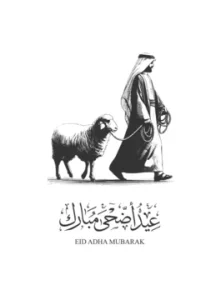 Along with the rest of the country and the world, the Muslims in Meghalaya celebrated Eid al-Adha recently, which falls on the 10th of Zul Hijjah which is the last month of Islamic calendar. It also ends the annual Hajj Pilgrimage to Mecca. Eid al-Adha is the second most important festival of the Muslims.
Along with the rest of the country and the world, the Muslims in Meghalaya celebrated Eid al-Adha recently, which falls on the 10th of Zul Hijjah which is the last month of Islamic calendar. It also ends the annual Hajj Pilgrimage to Mecca. Eid al-Adha is the second most important festival of the Muslims.
The order of the day begins with an early morning bath, putting on good and clean clothes and then going for prayers. After the prayers, people return to their home and those who are eligible for sacrifice get ready for the sacrifice of the animal.
Thousands of men and children wearing new clothes and skull caps offered special prayers at the Eidgah and mosques in Shillong. Apart from the Eidgah in the capital Shillong, special prayers were held in different mosques located in Jowai, Nongpoh, Byrnihat, Dawki. The Festival marks the celebration of the Prophet Ibrahim’s (peace be upon him -pbuh) devotion and sacrifice when asked by Allah to sacrifice his son.
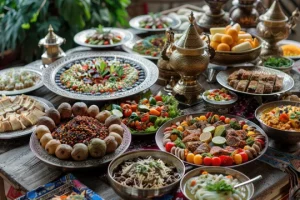 Muslims come together for three days to honour the Prophet Ibrahim (pbuh) sacrifice by giving charity, making sacrifice and feasting specially to the poor and the needy.
Muslims come together for three days to honour the Prophet Ibrahim (pbuh) sacrifice by giving charity, making sacrifice and feasting specially to the poor and the needy.
Muslims on this day offer an animal in sacrifice such as sheep, goat,cow and camel for the sake of Allah Swt. The sacrifice is not mandatory for all but those who have and can afford must sacrifice.
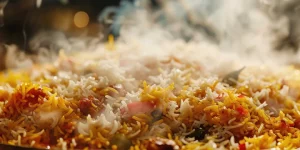 The sacrificed meat is divided and distributed among the family, neighbours, poor and the needy. The meat is distributed to all so that everyone enjoys the festival in the same manner.
The sacrificed meat is divided and distributed among the family, neighbours, poor and the needy. The meat is distributed to all so that everyone enjoys the festival in the same manner.
Since there is speculation around it, it is only appropriate to clear the air that Allah SWT does not need anything as He is self-sufficient. Nor the blood or the meat goes to Him, what goes to Him is the taqwa or the piety, the purity of heart and the soul’s intention to do anything for the sake of Allah, The Almighty and no one else.
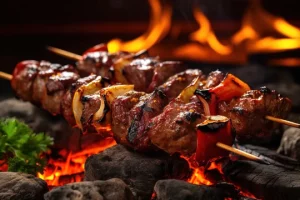 Eid al-Adha brings people together in gratitude,forgiveness and patience and also spreads the message of joy and harmony. It teaches the values of equality, sharing, caring and providing for others.
Eid al-Adha brings people together in gratitude,forgiveness and patience and also spreads the message of joy and harmony. It teaches the values of equality, sharing, caring and providing for others.
The festival is also enjoyed by people of all ages and genders as different kinds of traditional delicacies starting with a sherbet and then moving onto the Biryanis (chicken or mutton), pulaos, kebabs and curries of the sacrificed animals, sweets like Sevaiyan(vermicelli) or sheer korma, halwa and rabri that are prepared in lavish fashion for the guests and family members. In a traditional manner, all delicacies are savoured by sitting together with family, friends, and relatives.
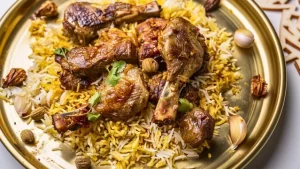 Young tiny tots are also seen having a good time as they enjoy the festival with sweets and gifts which they receive from their elders on the occasion. Like all festivals, children are seen making the most merry, are among the happiest and a special day for them in their best attire.
Young tiny tots are also seen having a good time as they enjoy the festival with sweets and gifts which they receive from their elders on the occasion. Like all festivals, children are seen making the most merry, are among the happiest and a special day for them in their best attire.
It’s a day of full merriment for all. In every family, the endeavour is to be together and celebrate Eid with full pomp and gaiety. Most importantly, it is to live by the teachings of the Quran, as Islam never teaches and preaches violence and disturbance to other faiths 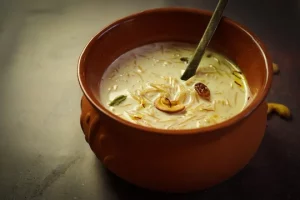 and communities instead it teaches Peace, Tranquility, Brotherhood among all the fellow citizens as well as respect others’ faith .
and communities instead it teaches Peace, Tranquility, Brotherhood among all the fellow citizens as well as respect others’ faith .
– Aafaque Hussain



